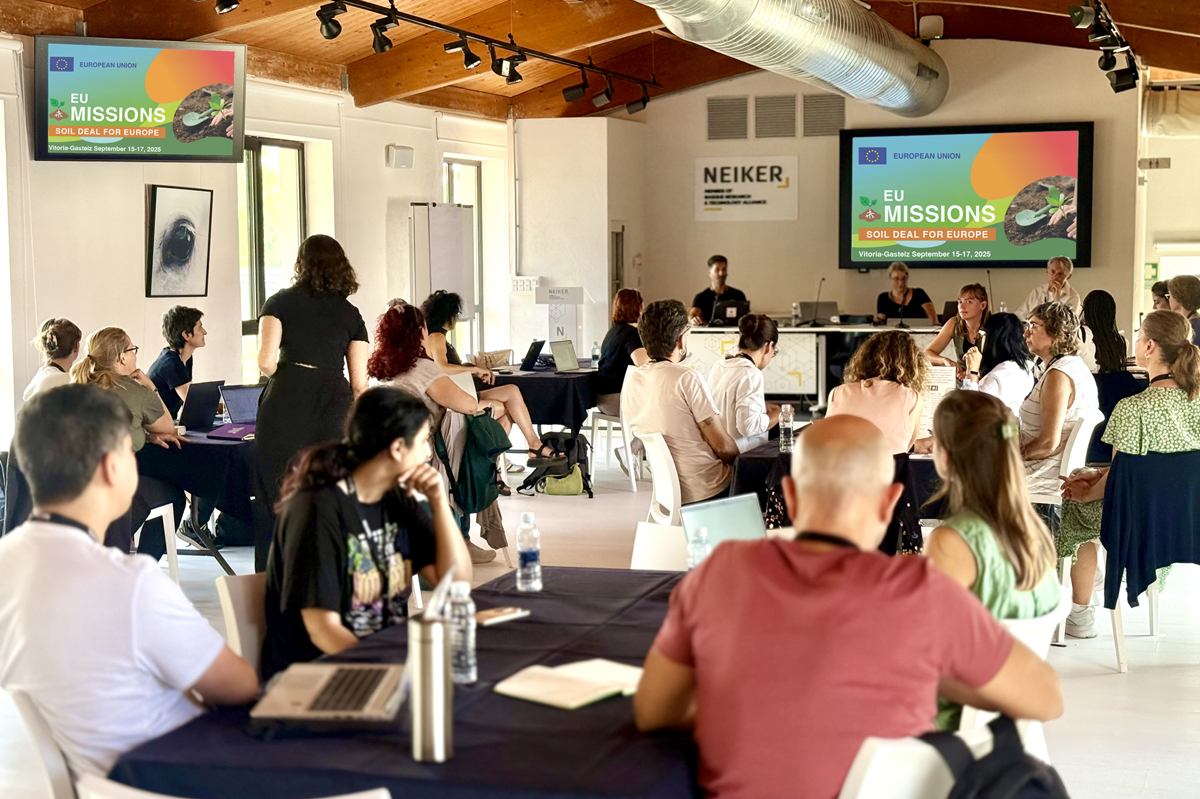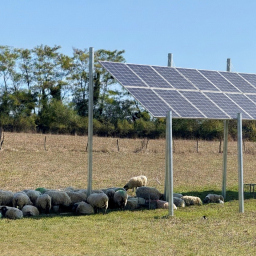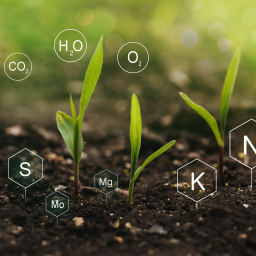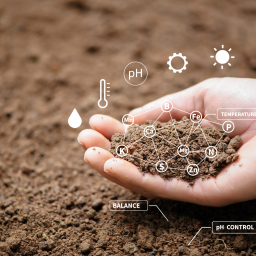NEW
NEIKER welcomes European monitoring experts to halt soil degradation
16 September 2025- The technology centre will bring together farmers, scientists, and companies from 15 to 17 September at its Arkaute headquarters to discuss and exchange experiences on soil health.
- The meeting is being held within the context of the “A Soil Deal for Europe” mission, which is promoted by the European Union and seeks to ensure that at least 75% of European soils are in good condition by 2030.
- The programme combines short theoretical sessions with visits and practical activities in the fields, pastures, and vineyards of the NEIKER long-term trial network.
Soils play an essential role in food production, carbon storage, water regulation, and host much of the Earth’s biodiversity. Soil degradation compromises up to 60% of these functions in Europe and could jeopardise society’s ability to adapt to climate change. To prevent that from happening, the European Union (EU) has launched the “A Soil Deal for Europe” (Mission Soil) initiative under the Horizon Europe programme, with the goal of ensuring that at least 75% of European soils are in good condition by 2030.
This EU Mission relies on the creation of living labs and lighthouses, spaces where agricultural, science, and business professionals can test innovative solutions to improve soil health and showcase good practices to inspire other players.
With nearly 100 living labs planned across Europe (some already operational and others in the initial phase), these spaces will drive coordinated progress in soil restoration and monitoring.
In this context, the NEIKER technology centre, an entity dependent on the Department of Food, Rural Development, Agriculture, and Fisheries of the Basque Government, is hosting a training event at its headquarters in Arkaute (Álava) from 15 to 17 September, bringing together experts and managers from these European spaces to discuss and exchange experiences.
Long-term trials
The NEIKER meeting’s programme combines short talks aimed at encouraging debate and active participation with field activities. All of this is linked to the work the technology centre carries out in the fields, pastures, and vineyards of the BALTSAN long-term agricultural trial network.
“We will demonstrate how these trials work to study soil evolution under real-life conditions and test practices such as regenerative grazing, resilient viticulture, and organic fertilisation, giving rise to information to move toward more sustainable and resilient agricultural systems”, says Lur Epelde, a researcher in NEIKER’s Department of Conservation of Natural Resources.
Digitising soils
The event also features a dedicated space for the Soil Health Data Cube, a digital twin of European soils developed within the framework of the AI4SoilHealth project. The tool integrates historical and current data from indicators on climate, geographic, and edaphic properties (encompassing physical, chemical, and biological characteristics of the soil), creating detailed maps that accurately display soil status and allow us to compare how different regions and agricultural techniques affect soil health.
“The Soil Health Data Cube can analyse the evolution of soils and study how they respond to factors such as climate change and the application of new agricultural techniques. The knowledge generated can be taken to concrete decisions tailored for any scale”, the researcher assures.
Living labs at NEIKER
The choice of NEIKER to host the EU Mission meeting is in part due to the existence of a number of living labs operating in Spain, such as the LILAS4SOILS project, in which NEIKER also participates.
Furthermore, hosting this training alongside international professionals such as Rachel Creamer of Wageningen University and David Robinson of the UK Centre for Ecology allows the centre to exchange knowledge and transfer best practices to the Basque context.
“During these days, NEIKER will become a European point of reference for sustainable soil monitoring and management, strengthening its leadership in applied research and contributing to improving soil health in the Basque Country and Europe”, concludes Epelde.
This training has been co-organised by the BENCHMARKS, AI4SoilHealth (of which NEIKER is a part), and Mission Soil projects, with support from the Joint Research Centre.






